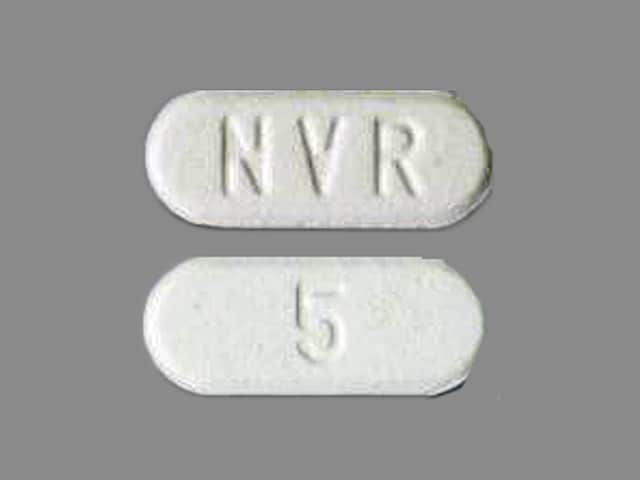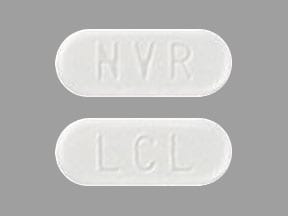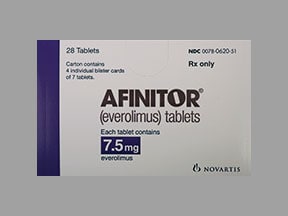What is Afinitor and Afinitor Disperz?
Afinitor is a prescription medicine used to treat:
- advanced hormone receptor-positive, HER2-negative breast cancer, along with the medicine exemestane, in postmenopausal women who have already received certain other medicines for their cancer.
- adults with a type of pancreatic cancer known as pancreatic neuroendocrine tumor (PNET), that has progressed and cannot be treated with surgery.
- adults with a type of cancer known as neuroendocrine tumor (NET) of the stomach and intestine (gastrointestinal), or lung that has progressed and cannot be treated with surgery.
Afinitor is not for use in people with carcinoid tumors that actively produce hormones. - adults with advanced kidney cancer (renal cell carcinoma or RCC) when certain other medicines have not worked.
- people with the following types of tumors that are seen with a genetic condition called tuberous sclerosis complex (TSC):
- adults with a kidney tumor called angiomyolipoma, when their kidney tumor does not require surgery right away.
- adults and children 1 year of age and older with a brain tumor called subependymal giant cell astrocytoma (SEGA) when the tumor cannot be removed completely by surgery.
Afinitor Disperz is a prescription medicine used to treat:
- adults and children 1 year of age and older with a genetic condition called tuberous sclerosis complex (TSC) who have a brain tumor called subependymal giant cell astrocytoma (SEGA) when the tumor cannot be removed completely by surgery.
- adults and children 2 years of age and older with a genetic condition called tuberous sclerosis complex (TSC) who have certain types of seizures (epilepsy), as an added treatment to other antiepileptic medicines.
It is not known if Afinitor and Afinitor Disperz are safe and effective in children to treat:
- hormone receptor-positive, HER-2 negative breast cancer
- a type of cancer called neuroendocrine tumors (NET)
- kidney cancer (renal cell carcinoma)
- a kidney tumor called angiomyolipoma, that can happen in children with a genetic condition called tuberous sclerosis complex (TSC).
What is the most important information I should know about Afinitor and Afinitor Disperz?
Afinitor and Afinitor Disperz can cause serious side effects. These serious side effects include:
1. You may develop lung or breathing problems. In some people lung or breathing problems may be severe, and can even lead to death. Tell your healthcare provider right away if you have any of these symptoms:
- New or worsening cough
- Shortness of breath
- Chest pain
- Difficulty breathing or wheezing
2. You may be more likely to develop an infection, such as pneumonia, or a bacterial, fungal or viral infection. Viral infections may include active hepatitis B in people who have had hepatitis B in the past (reactivation). In some people (including adults and children) these infections may be severe, and can even lead to death. You may need to be treated as soon as possible.
Tell your healthcare provider right away if you have a temperature of 100.5˚F or above, chills, or do not feel well.
Symptoms of hepatitis B or infection may include the following:
- Fever
- Chills
- Skin rash
- Joint pain and inflammation
- Tiredness
- Loss of appetite
- Nausea
- Pale stools or dark urine
- Yellowing of the skin
- Pain in the upper right side of the stomach
3. Severe allergic reactions. Severe allergic reactions can happen in people who take Afinitor or Afinitor Disperz. Call your healthcare provider or get medical help right away if you get signs and symptoms of a severe allergic reaction including: rash, itching, hives, flushing, trouble breathing or swallowing, chest pain or dizziness.
4. Possible increased risk for a type of allergic reaction called angioedema, in people who take an Angiotensin-Converting Enzyme (ACE) inhibitor medicine during treatment with Afinitor or Afinitor Disperz. Talk with your healthcare provider before taking Afinitor or Afinitor Disperz if you are not sure if you take an ACE inhibitor medicine. Get medical help right away if you have trouble breathing or develop swelling of your tongue, mouth, or throat during treatment with Afinitor or Afinitor Disperz.
5. You may develop kidney failure. In some people this may be severe and can even lead to death. Your healthcare provider should do tests to check your kidney function before and during your treatment with Afinitor or Afinitor Disperz.
If you have any of the serious side effects listed above, you may need to stop taking Afinitor or Afinitor Disperz for a while or use a lower dose. Follow your healthcare provider’s instructions.
Who should not take Afinitor or Afinitor Disperz?
Do not take Afinitor or Afinitor Disperz if you have had a severe allergic reaction to everolimus.
Talk to your healthcare provider before taking this medicine if you are allergic to:
- sirolimus (Rapamune)
- temsirolimus (Torisel)
Ask your healthcare provider if you do not know.
What should I tell my healthcare provider before taking Afinitor or Afinitor Disperz?
Before taking Afinitor or Afinitor Disperz, tell your healthcare provider about all of your medical conditions, including if you:
- Have or have had kidney problems
- Have or have had liver problems
- Have diabetes or high blood sugar
- Have high blood cholesterol levels
- Have any infections
- Previously had hepatitis B
- Are scheduled to receive any vaccinations. You should not receive a “live vaccine” or be around people who have recently received a “live vaccine” during your treatment with Afinitor or Afinitor Disperz. If you are not sure about the type of immunization or vaccine, ask your healthcare provider. For children with TSC and SEGA or certain types of seizures, work with your healthcare provider to complete the recommended childhood series of vaccines before your child starts treatment with Afinitor or Afinitor Disperz.
- Are pregnant, can become pregnant, or have a partner who can become pregnant. Afinitor or Afinitor Disperz can cause harm to your unborn baby. If you are a female who is able to become pregnant you should use effective birth control during treatment and for 8 weeks after your last dose of Afinitor or Afinitor Disperz. If you are a male with a female partner, you should use effective birth control during treatment and for 4 weeks after your last dose of Afinitor or Afinitor Disperz. Talk to your healthcare provider about birth control methods that may be right for you during this time. If you become pregnant or think you are pregnant, tell your healthcare provider right away.
- Are breastfeeding or plan to breastfeed. It is not known if Afinitor or Afinitor Disperz passes into your breast milk. Do not breastfeed during treatment and for 2 weeks after your last dose of Afinitor or Afinitor Disperz.
- Are planning to have surgery, if you have had a recent surgery, or if you have an unhealed wound. See “What are the possible side effects of Afinitor and Afinitor Disperz?”
Tell your healthcare provider about all of the medicines you take, including prescription and over-the-counter medicines, vitamins, and herbal supplements.
Afinitor or Afinitor Disperz may affect the way other medicines work, and other medicines can affect how Afinitor or Afinitor Disperz work. Taking Afinitor or Afinitor Disperz with other medicines can cause serious side effects.
Know the medicines you take. Keep a list of them and show it to your healthcare provider and pharmacist when you get a new medicine. Especially tell your healthcare provider if you take:
- St. John’s Wort (Hypericum perforatum)
- Medicine for:
- Fungal infections
- Bacterial infections
- Tuberculosis
- Seizures
- HIV-AIDS
- Heart conditions or high blood pressure
- Medicines that weaken your immune system (your body’s ability to fight infections and other problems)
Ask your healthcare provider or pharmacist if you are not sure if your medicine is one of those taken for the conditions listed above. If you are taking any medicines for the conditions listed above, your healthcare provider might need to prescribe a different medicine or your dose of Afinitor or Afinitor Disperz may need to be changed. You should also tell your healthcare provider before you start taking any new medicine.
How should I take Afinitor or Afinitor Disperz?
- Your healthcare provider will prescribe the dose of Afinitor or Afinitor Disperz that is right for you.
- Take Afinitor or Afinitor Disperz exactly as your healthcare provider tells you to.
- When you start treatment with Afinitor, your healthcare provider may also prescribe a mouthwash to reduce the likelihood of getting mouth ulcers or sores and to reduce their severity. Follow your healthcare provider’s instructions on how to use this prescription mouthwash.
- Your healthcare provider may change your dose of Afinitor or Afinitor Disperz or tell you to temporarily interrupt dosing, if needed.
- Take only Afinitor or Afinitor Disperz. Do not mix Afinitor and Afinitor Disperz together.
- Use scissors to open the blister pack.
Afinitor:
- Swallow Afinitor tablets whole with a glass of water. Do not take any tablet that is broken or crushed.
Afinitor Disperz:
- If your healthcare provider prescribes Afinitor Disperz for you, see the “Instructions for Use” that come with your medicine for instructions on how to prepare and take your dose.
- Each dose of Afinitor Disperz must be prepared as a suspension before it is given.
- Afinitor Disperz can cause harm to an unborn baby. When possible, the suspension should be prepared by an adult who is not pregnant or planning to become pregnant.
- Wear gloves to avoid possible contact with everolimus when preparing suspensions of Afinitor Disperz for another person.
- Take Afinitor or Afinitor Disperz 1 time each day at about the same time.
- Take Afinitor or Afinitor Disperz the same way each time, either with food or without food.
- If you take too much Afinitor or Afinitor Disperz, contact your healthcare provider or go to the nearest hospital emergency room right away. Take the pack of Afinitor or Afinitor Disperz with you.
- If you miss a dose of Afinitor or Afinitor Disperz, you may take it if it is less than 6 hours after the time you normally take it. If it is more than 6 hours after you normally take your Afinitor or Afinitor Disperz, skip the dose for that day. The next day, take Afinitor or Afinitor Disperz at your usual time. Do not take 2 doses to make up for a missed dose. If you are not sure about what to do, call your healthcare provider.
- You should have blood tests before you start Afinitor or Afinitor Disperz and as needed during your treatment. These will include tests to check your blood cell count, kidney and liver function, cholesterol, and blood sugar levels.
- If you take Afinitor or Afinitor Disperz to treat SEGA or Afinitor Disperz to treat certain types of seizures with TSC, you will also need to have blood tests regularly to measure how much medicine is in your blood. This will help your healthcare provider decide how much Afinitor or Afinitor Disperz you need to take.
What should I avoid while taking Afinitor or Afinitor Disperz?
You should not drink grapefruit juice or eat grapefruit during your treatment with Afinitor or Afinitor Disperz. It may make the amount of Afinitor or Afinitor Disperz in your blood increase to a harmful level.
What are the possible side effects of Afinitor or Afinitor Disperz?
Afinitor and Afinitor Disperz can cause serious side effects.
- See “What is the most important information I should know about Afinitor and Afinitor Disperz?” for more information.
- Delayed wound healing. Afinitor and Afinitor Disperz can cause incisions to heal slowly or not heal well. Call your healthcare provider right away if you have any of the following symptoms:
- your incision is red, warm or painful
- blood, fluid, or pus in your incision
- your incision opens up
- swelling of your incision
- Increased blood sugar and fat (cholesterol and triglyceride) levels in the blood. Your healthcare provider should do blood tests to check your fasting blood sugar, cholesterol, and triglyceride levels in the blood before you start and during treatment with Afinitor or Afinitor Disperz.
- Decreased blood cell counts. Afinitor and Afinitor Disperz can cause you to have decreased red blood cells, white blood cells, and platelets. Your healthcare provider should do blood tests to check your blood cell counts before you start and during treatment with Afinitor or Afinitor Disperz.
The most common side effects of Afinitor in people with advanced hormone receptor-positive, HER2-negative breast cancer, advanced neuroendocrine tumors of the pancreas, stomach and intestine (gastrointestinal) or lung, and advanced kidney cancer include:
- Mouth ulcers. Afinitor can cause mouth ulcers and sores. When you start treatment with Afinitor, your healthcare provider may tell you to also start a prescription mouthwash to reduce the likelihood of getting mouth ulcers or sores and to reduce their severity. Follow your healthcare provider’s instructions on how to use this prescription mouthwash. If you develop pain, discomfort, or open sores in your mouth, tell your healthcare provider. Your healthcare provider may tell you to re-start this mouthwash or to use a special mouthwash or mouth gel that does not contain alcohol, peroxide, iodine, or thyme.
- Infections
- Rash
- Feeling weak or tired
- Diarrhea
- Swelling of arms, hands, feet, ankles, face or other parts of the body
- Stomach-area (abdominal) pain
- Nausea
- Fever
- Cough
- Headache
- Decreased appetite
The most common side effects of Afinitor and Afinitor Disperz in people who have SEGA, renal angiomyolipoma, or certain types of seizures with TSC include:
- Mouth ulcers. Afinitor and Afinitor Disperz can cause mouth ulcers and sores. When you start treatment with Afinitor or Afinitor Disperz, your healthcare provider may tell you to also start a prescription mouthwash to reduce the likelihood of getting mouth ulcers or sores and to reduce their severity. Follow your healthcare provider’s instructions on how to use this prescription mouthwash. If you develop pain, discomfort, or open sores in your mouth, tell your healthcare provider. Your healthcare provider may tell you to re-start this mouthwash or to use a special mouthwash or mouth gel that does not contain alcohol, peroxide, iodine, or thyme.
- Respiratory tract infections.
Other side effects that may occur with Afinitor and Afinitor Disperz:
- Absence of menstrual periods (menstruation). You may miss 1 or more menstrual periods. Tell your healthcare provider if this happens.
- Afinitor and Afinitor Disperz may affect fertility in females and may affect your ability to become pregnant. Talk to your healthcare provider if this is a concern for you.
- Afinitor and Afinitor Disperz may affect fertility in males and may affect your ability to father a child. Talk to your healthcare provider if this is a concern for you.
Tell your healthcare provider if you have any side effect that bothers you or does not go away.
These are not all the possible side effects of Afinitor and Afinitor Disperz. For more information, ask your healthcare provider or pharmacist.
Call your doctor for medical advice about side effects. You may report side effects to FDA at 1-800-FDA-1088.
Afinitor Images
General information about the safe and effective use of Afinitor and Afinitor Disperz
Medicines are sometimes prescribed for purposes other than those listed in a Patient Information leaflet. Do not use Afinitor or Afinitor Disperz for a condition for which it was not prescribed. Do not give Afinitor or Afinitor Disperz to other people, even if they have the same problem you have. It may harm them.
This leaflet summarizes the most important information about Afinitor and Afinitor Disperz. If you would like more information, talk with your healthcare provider. You can ask your healthcare provider or pharmacist for information written for healthcare professionals.
For more information call 1-888-423-4648 or go to www.afinitor.com.
How should I store Afinitor or Afinitor Disperz?
- Store Afinitor or Afinitor Disperz at room temperature, between 68°F to 77°F (20°C to 25°C).
- Keep Afinitor or Afinitor Disperz in the pack it comes in.
- Open the blister pack just before taking Afinitor or Afinitor Disperz.
- Keep Afinitor or Afinitor Disperz dry and away from light.
- Do not use Afinitor or Afinitor Disperz that is out of date or no longer needed.
Keep Afinitor or Afinitor Disperz and all medicines out of the reach of children.
What are the ingredients in Afinitor?
Active ingredient: everolimus.
Inactive ingredients: anhydrous lactose, butylated hydroxytoluene, crospovidone, hypromellose, lactose monohydrate, and magnesium stearate.
What are the ingredients in Afinitor Disperz?
Active ingredient: everolimus.
Inactive ingredients: butylated hydroxytoluene, colloidal silicon dioxide, crospovidone, hypromellose, lactose monohydrate, magnesium stearate, mannitol, and microcrystalline cellulose.









